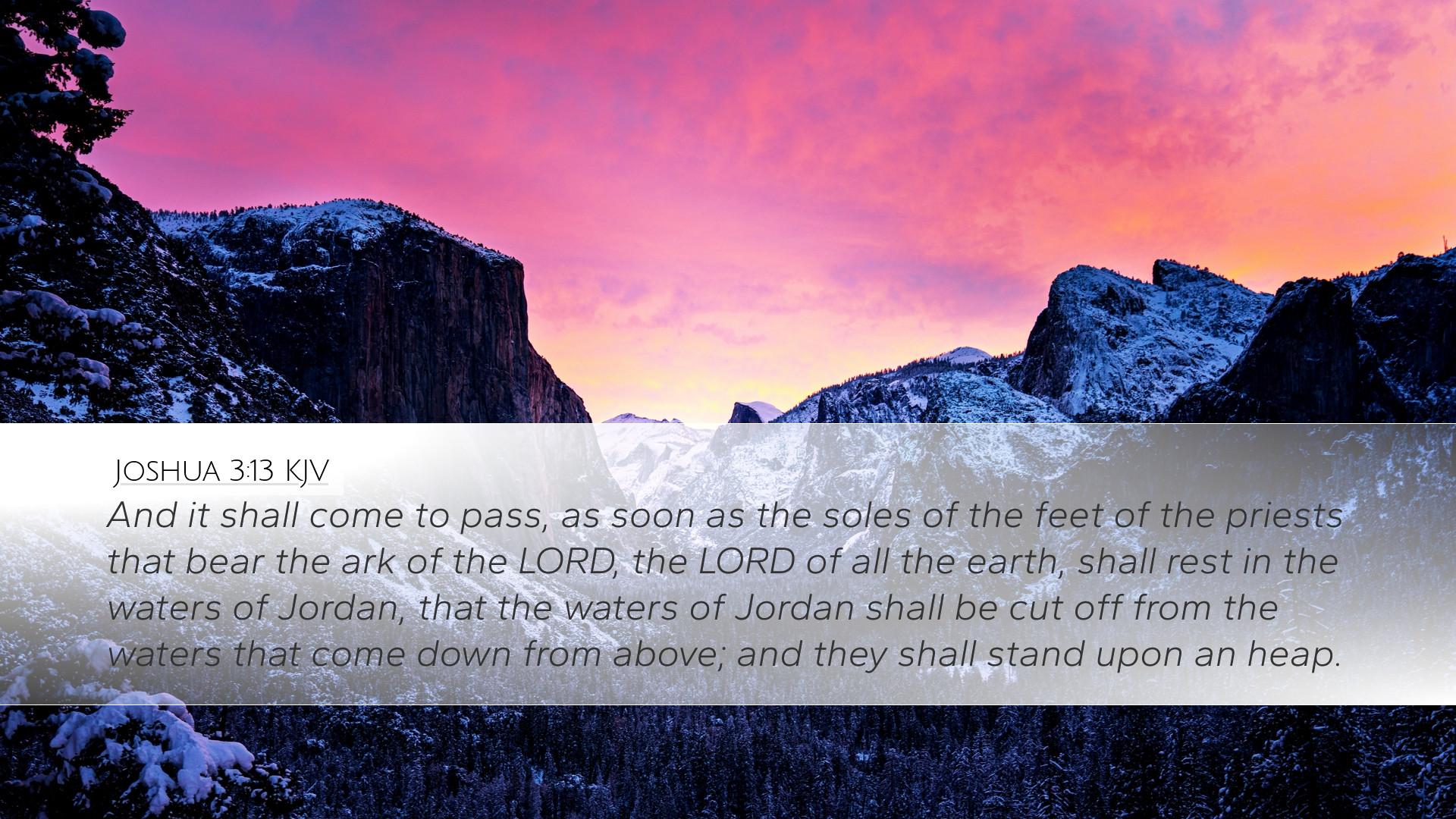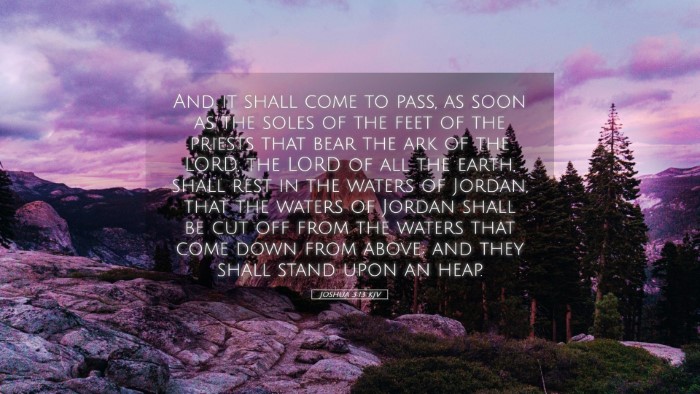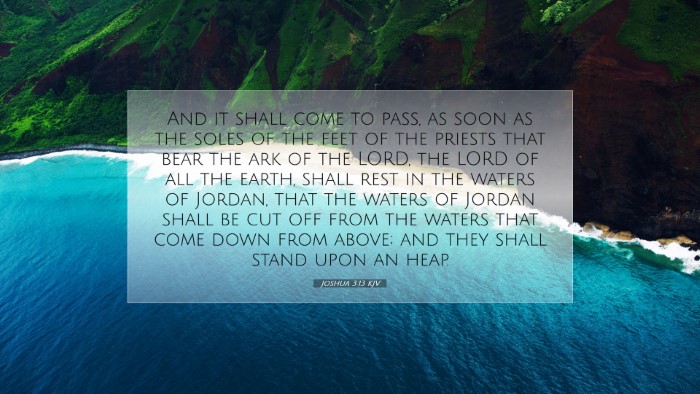Old Testament
Genesis Exodus Leviticus Numbers Deuteronomy Joshua Judges Ruth 1 Samuel 2 Samuel 1 Kings 2 Kings 1 Chronicles 2 Chronicles Ezra Nehemiah Esther Job Psalms Proverbs Ecclesiastes Song of Solomon Isaiah Jeremiah Lamentations Ezekiel Daniel Hosea Joel Amos Obadiah Jonah Micah Nahum Habakkuk Zephaniah Haggai Zechariah MalachiJoshua 3:13
Joshua 3:13 KJV
And it shall come to pass, as soon as the soles of the feet of the priests that bear the ark of the LORD, the LORD of all the earth, shall rest in the waters of Jordan, that the waters of Jordan shall be cut off from the waters that come down from above; and they shall stand upon an heap.
Joshua 3:13 Bible Commentary
Commentary on Joshua 3:13
Verse: "And it shall come to pass, as soon as the soles of the feet of the priests that bear the ark of the LORD, the Lord of all the earth, shall rest in the waters of Jordan, that the waters of Jordan shall be cut off from the waters that come down from above; and they shall stand upon an heap."
Context and Significance
The context of Joshua 3 is pivotal as it describes the Israelites' entrance into the Promised Land. This event marks a transition from their wandering years to the fulfillment of God's promise, highlighting themes of faith, obedience, and divine intervention.
Historical Background
Prior to this moment, the Israelites had spent forty years in the wilderness. The crossing of the Jordan River is emblematic of the end of their journey from slavery in Egypt to liberation and establishment in Canaan. The significance of this crossing is underscored in the scriptural narrative, emphasizing that God is leading His people.
The Divine Command
The text opens with God's instructions to Joshua regarding the priests. The priests carrying the Ark of the Covenant play a crucial role in this miraculous event, representing God's presence among His people.
Insights from Commentaries
-
Matthew Henry:
Henry underscores the faith required in taking this action. The priests must step into the waters of Jordan before any miracle occurs, symbolizing the necessity of stepping out in faith before God acts on our behalf.
-
Albert Barnes:
Barnes notes the significance of the Ark as a symbol of God’s covenant with Israel. He points out that this act of faith initiates the process of crossing the Jordan, showcasing God’s power in controlling nature.
-
Adam Clarke:
Clarke reflects on the geographical and seasonal context of the Jordan River at flood stage, emphasizing the miraculous nature of the event. He asserts that the crossing illustrates God's omnipotence and His ability to intervene in the natural order for the sake of His people.
The Role of the Priests
The priests serve as the intermediaries between God and the people. Their act of entering the river signifies their faith and obedience. Matthew Henry emphasizes that the presence of the priests and the Ark reassures the Israelites of God’s guidance and promises.
Priestly Function and Faith
Clarke elaborates on the symbolic action of the priests standing firm in the flooding waters. It represents a model of faith for contemporary believers, standing firm even when circumstances appear insurmountable.
The Miraculous Event
The cutting off of Jordan's waters is a miraculous event that serves as a testament to God’s glory and power. Throughout biblical history, God performs miracles to demonstrate His sovereignty and faithfulness, reinforcing the need for His people to trust in Him.
Reflections on God’s Power
Barnes expounds on how this divine occurrence typifies God’s role as the "Lord of all the earth," asserting that His sovereignty extends over creation, and the easing of impediments is merely an aspect of divine authority.
Theological Implications
This passage opens up several theological reflections for pastors and theologians. The act of crossing the Jordan reflects God's faithfulness to His promises and initiates a new chapter for Israel, leading to further divine encounters.
Faith and Obedience
Pastoral applications could dive deep into the themes of faith and obedience. Just as the Israelites had to trust God before stepping into the river, contemporary believers must also demonstrate faith before seeing God's intervention in their lives.
Conclusion
Joshua 3:13 serves as a significant passage illustrating faith, divine promise, and the miraculous intervention of God in the lives of His people. This biblical foundation encourages believers today to approach their journeys with trusting hearts, obedient spirits, and an unwavering belief in God's power and promises.


